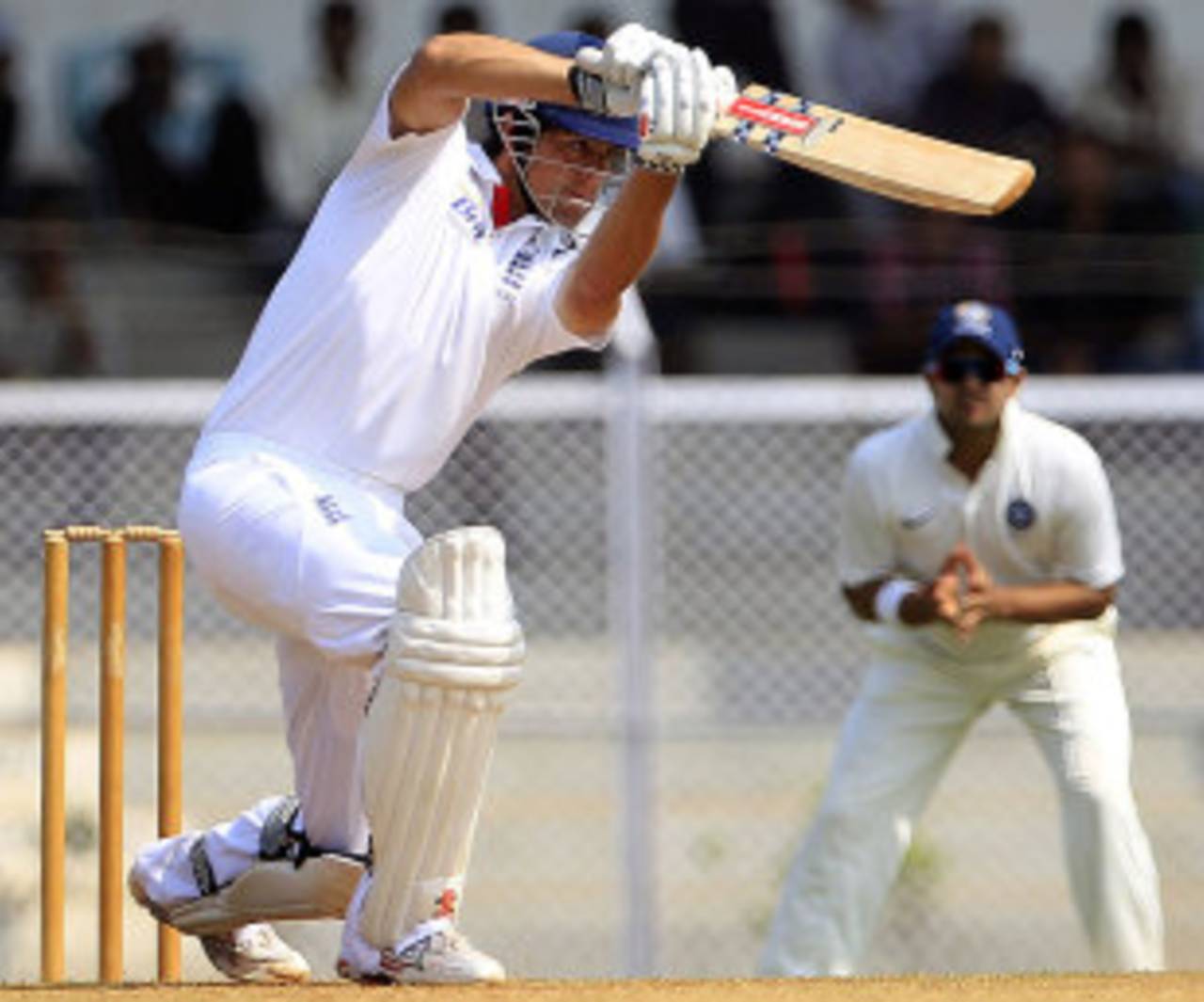Revenge is not the answer
India must play to their strengths against England, but not at the cost of forgetting their long-term goals
Harsha Bhogle
02-Nov-2012

A better approach to the practice match in Mumbai would have been to pick the lower-ranked spinners and let them have a go at the England batsmen • Associated Press
The word "revenge" keeps cropping up in the build-up to India's series against England, like a whiff of malodorous air on a pleasant evening. I don't like the word. It has the wrong intent. It can produce very short-term goals and can be counter-productive in the long run. Revenge is inevitably clothed in anger, and that is a terrible way to play sport. I fear, too, that the desire to seek revenge can come in the way of the quest for excellence, a far better objective to possess.
Against England, for example, revenge could mean preparing rank turners and unleashing spinners (or more pertinently, helping your batsmen, who can play their spinners better). Rank turners are as bad as trampolines, where the ball bounces from stupid lengths, make batting dangerous, and produce an unequal contest.
I don't mind the producing of pitches that aid spinners, where the ball grips the surface and turns, where batting requires great skill to overcome the bowling. That is fair and is part of the home advantage host teams are entitled to. It is also an essential part of touring and of playing in away conditions.
Preparing dust tracks will give India an inflated opinion of their own spinners and will tell the country's young fast bowlers that when the time comes to step up, they will be the first casualties. When India tour overseas, the fast bowlers will have to be dusted off and the spinners will look inadequate. A short-term goal might be served but in the long-term India will be weakened.
To be fair, India haven't produced too many dust tracks in recent times. Mumbai 2004 was an aberration. It was bad, but only as bad as the pitches for India in New Zealand in 2002 and in Durban in 1996. In fact, New Zealand 2002 is a good example. They produced terrible wickets and won the series with bowlers like Daryl Tuffey and Jacob Oram looking nearly unplayable, but their cricket went nowhere thereafter.
India should back themselves on good turning tracks where skilled batsmen have the opportunity to score runs. They shouldn't have to produce anything worse.
The spirit of revenge will also mean an obsession with a 4-0 scoreline, and that is too far in the distance. Sport often tells you that you need to take one step at a time. You can't think of winning the third set when you are still playing the first. India need to think of winning the first Test, only then contemplate the second, and not think of the fourth till three have been played.
Indeed, the first Test will give them an idea of how good the team really is, for there are problems within it - of form and longevity of key cricketers, for a start. Indian cricket is in a state of flux. Two key batsmen have retired and one key spinner - Harbhajan Singh - has gone off the radar. The openers need to convince everyone that they can put together long partnerships again. India will do well to try to win the first Test and think of the next thereafter.
I suspect, though, that beneath this veneer of great confidence lies a slightly troubled outlook. Not playing a frontline spinner against England in a tour game is an acceptable tactical move but a slightly defensive one. If indeed India plan to waylay England with spin on turning tracks, the more aggressive option would have been to play the spinners ranked Nos. 6, 7 and 8 on the selectors' shortlist, backing them to run through the visitors on a proper spinner's deck in Mumbai. That would be the subcontinental version of what the Aussies often did to touring sides: start at Perth on a fiery track with good first-class quicks, dismantle the visitors before they could adjust, and direct them to the first Test in Brisbane with thoughts of having to play superior bowling on a bouncy pitch. Rather than hide their weapons, the Australians attacked early with them.
I got the impression India weren't too confident of their spin-bowling resources to follow that strategy, but it would still have been a good approach.
I think the opposition England provide will depend largely on how they rate themselves. Too many English teams have arrived in India eager to find traps: food, dust and spin. But now the grounds are nice, the hotels are outstanding (they all serve quality international cuisine), and playing in India isn't really that difficult. Teams with players in the IPL already display the comfort factor, but not many Englishmen have played here. If they search for reasons to fail, they will find them. But if they back themselves, embrace India and look forward to the next morning, I believe they can be more than a handful.
Harsha Bhogle is a commentator, television presenter and writer. His Twitter feed is here